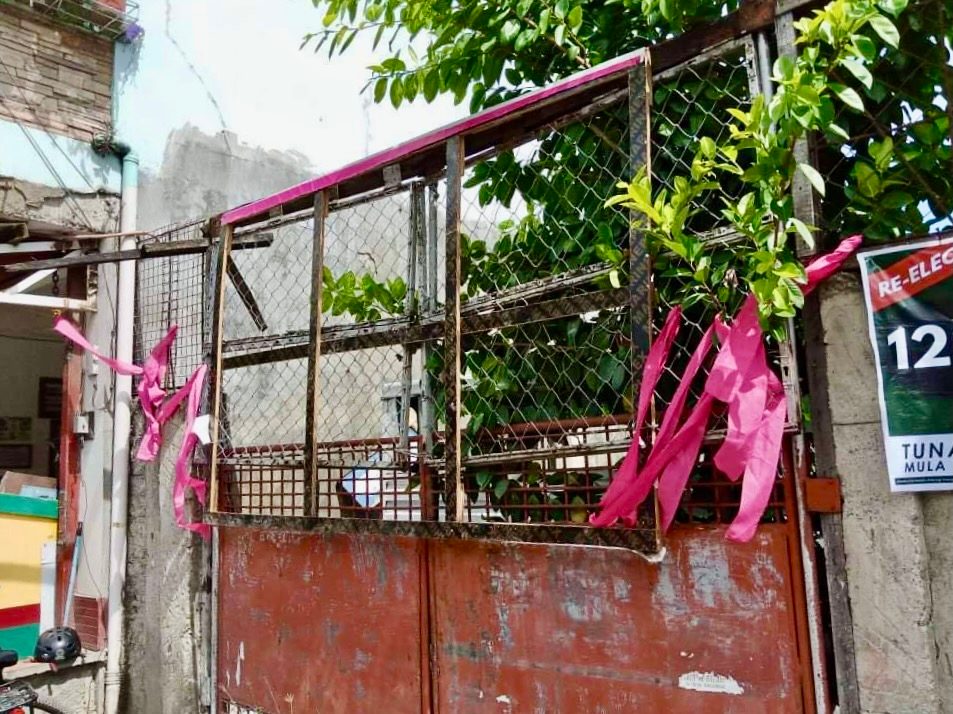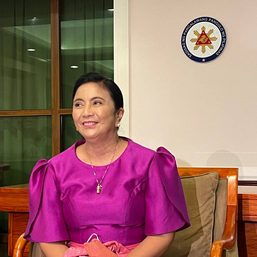SUMMARY
This is AI generated summarization, which may have errors. For context, always refer to the full article.

MANILA, Philippines – Volunteers campaigning for the presidency of Vice President Leni Robredo slammed the Commission on Elections (Comelec) after it took down campaign materials posted on volunteers’ properties – an act the Comelec defended as well within its power to do.
On Friday, February 11, the volunteers wrote a demand letter against the Comelec for taking down posters and tarpaulins in at least 6 properties “in one fell swoop” without giving them notice, pointing to the required 3-day heads up required by Comelec’s own Resolution No. 10730.
“This is a clear violation of fundamental rights under the Philippine constitution: the right to property, right to freedom of expression, and right to information,” the volunteers wrote in a letter, which was signed by at least 7 lawyers.
In a phone interview with Rappler on Sunday, February 13, Anton Lim, the coordinator of the Volunteers for Leni group in the Zamboanga Peninsula, said the Comelec also showed unfair bias against Robredo volunteers as it did not take down as many posters from volunteers of other candidates.
What happened?
Robredo volunteers posted tarpaulins of the vice president in their private properties and volunteer headquarters. When the official campaign period started on February 8, when election rules began to apply, the Comelec took them down with less than a day’s notice, according to volunteers.
Robredo volunteers pointed out that the Comelec overstepped in its authority as there is no law that regulates the campaign materials of non-candidates, including volunteers. They cited the Supreme Court’s ruling in The Diocese of Bacolod vs Comelec ruling of 2015.
In the letter, the volunteers demanded that Comelec return the confiscated campaign materials. If the Comelec does not reply and comply with their demand, they said they would file complaints against them.
Comelec’s defense
In text messages to Rappler, Comelec spokesman James Jimenez explained it was within the commission’s powers to take down the posters.
First, the Supreme Court ruling that they cited only took off Comelec’s regulation for posters expressing advocacy, but not for campaign materials. Even if the campaign materials were by supporters and were posted on private property, they were still up for regulation, Jimenez pointed out.
“The definition of ‘campaign materials’ does not distinguish based on source,” Jimenez said.
As for the volunteers seeking a 3-day notice, Jimenez also pointed to the same Comelec Resolution No. 10730, specifically its Section 26.
“The COMELEC may, motu proprio, immediately order the removal, destruction and/or confiscation of any prohibited propaganda material, or those materials which contain statements or representations that are illegal,” the section reads.
As for allegations of bias, Jimenez said Comelec officers who show partiality may be reported to their national office through the email address sumbongko@votesafe.ph.– Rappler.com
Add a comment
How does this make you feel?
![[EXPLAINER] How pandemic campaign rules are open to abuse, sow confusion](https://www.rappler.com/tachyon/2022/02/tl-pandemic-campaign-rules.jpg?fit=449%2C449)





![[Newspoint] Improbable vote](https://www.rappler.com/tachyon/2023/03/Newspoint-improbable-vote-March-24-2023.jpg?resize=257%2C257&crop=339px%2C0px%2C720px%2C720px)
![[Newspoint] 19 million reasons](https://www.rappler.com/tachyon/2022/12/Newspoint-19-million-reasons-December-31-2022.jpg?resize=257%2C257&crop=181px%2C0px%2C900px%2C900px)








There are no comments yet. Add your comment to start the conversation.